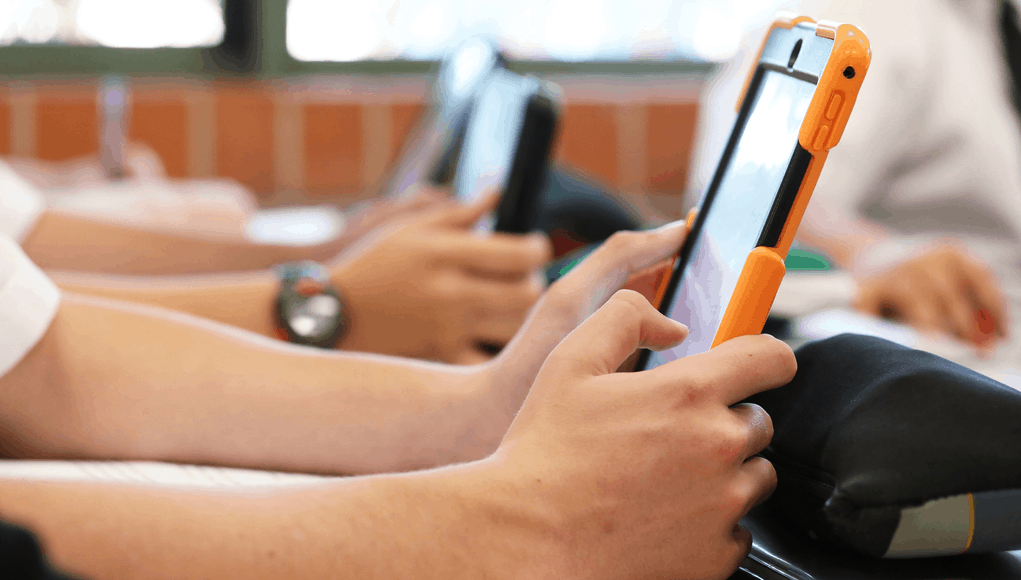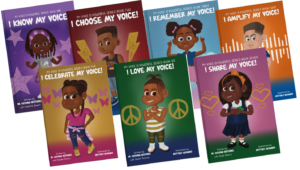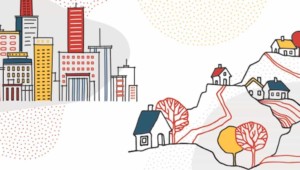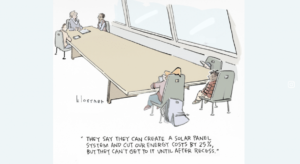The Power of We

By: Dr. Ilene Winokur
Being a difference-maker means more than just making a difference, it means inspiring others to see themselves as individuals, capable of harnessing their individual talents in order to work towards a collective good. Dr. Marialice Curran knows that changemakers aren’t one size fits all, which is why her work over the years has been focused on the “power of we.”
When Marialice was growing up, she felt like an outsider. She learned differently than her peers and was diagnosed in second grade as dyslexic. As an untraditional learner, she became comfortable with failure, and over the years, she learned how to harness her talent: connection and collaboration with others. In a way, she was wired to be a connected learner before she even had the tools. It wasn’t until much later, when she was appointed associate professor at the University of Saint Joseph (USJ) in Connecticut, that she finally found the platform to be able to champion others; social media gave her the voice to build a global network and show what we can do collectively, not just individually. Marialice is now using that strength as a change-maker, shifting the narrative about digital citizenship and how children learn to navigate a digital world through a personalized approach.
Marialice breaks down classroom walls and takes learning into the community. Her path to becoming a digital citizenship champion started by accident. Soon after being hired to lead the middle-level education program at USJ, the state eliminated the license and the program was canceled. This was in the early 2000s before educational technology (EdTech) was used widely, so Marialice pivoted by teaching herself applications of EdTech from kindergarten through college. Once she had immersed herself in learning about technology, she realized educators needed a plan for teaching digital citizenship (DigCit) to students because, at the time, DigCit was focused on eSafety and how to stay safe online. Marialice became the first professor in the United States to create a stand-alone three-credit course in digital citizenship for teacher candidates. The course took a proactive stance towards digital citizenship and how technology could be used for problem-solving, accessibility, equity, and inclusion (ie. #UseTech4Good).
Ultimately, she wanted to lead with DigCit, and not with technology, because she wanted to teach how to see the human next to us, around the world, and across the screen.
One course led to more and by Fall 2011, Marialice had created a First-Year Seminar called “Pleased to Tweet You.” She blogged about it and received global interest in the course. A class of 11th graders in Alabama joined the incoming college freshmen from USJ and they communicated and learned by Skyping and blogging. This work culminated in the iCitizen Project and continued the following semester in a live event they called the iCitizenship Town Hall Meeting. With the Alabama high school juniors and the Connecticut college freshmen leading the conversation, Marilaice was able to host her first simultaneous live and live stream event. The students were the experts and taught the audience what they learned about being a citizen in the 21st century during the semester-long course. Marialice’s definition for digital citizenship is a direct result of the students’ definition of what it means to be an iCitizen: “To be an iCitizen, we need opportunities to think and act at local, global, and digital levels.” The focus on human connections online has guided the Digital Citizenship Institute’s (DigCitInstitute) mission that the collective good is best served when individuals work as one world, one human race.
Marialice’s model of how to #UseTech4Good and students teaching others in their communities continued to evolve. In the fall of 2015, the first Digital Citizenship Summit (DigCitSummit) was held at the university. It was student-driven, involved multiple stakeholders from the entire community to #UseTech4Good, and showcased the power of individualized learning. The event gained attention through social media and even trended #1. Soon DigCitSummits were scheduled all over the world, including the UK, Ireland, Canada, Mexico, Spain, Nigeria, Cameroon, Kenya, and even Twitter headquarters. The DigCitSummit is held every October and is now in its seventh year. The focus is always on positive ways to use the internet to be connected and model good citizenship. In 2019, it went global and involved 37 countries, 43 states, and over 100,000 students who committed to becoming a force for good online for a whole week. In 2020, the Summit lasted a full 24 hours, and sessions were live-streamed from classrooms around the world and included presentations in English, Arabic, Spanish, and Portuguese.
In between the yearly Summits, Marialice’s DigCit Institute supports school districts throughout the year as they extend learning about how to #UseTech4Good to communities in school districts like Lakeshore Central near Buffalo, New York. This video captures highlights of the event (bit.ly/StudentLedDigCitSummit), amplifying student voice and leadership. Prior to the pandemic, Marialice traveled to districts around the United States to involve the whole community including students, parents/caregivers, educators, policymakers, the local library, local organizations, industry, and business leaders. She conducted on-site and virtual office hours and culminated in student-led presentations about their learning and how they #UseTech4Good.
Marialice’s most recent program is the Global IMPACTOR that lasted six weeks from January until March 2021. She wanted to continue facilitating learning experiences without overwhelming teachers, so she contacted a group of willing PK-12 teachers and paired their classes with a mentor that fit their impact project. The projects were personalized according to needs and preferences so each one was different. Everyone’s starting point was different, and everyone’s ending point was different, too. All participants, teachers, and mentors met every week and Marialice also scheduled one on one meetings with each project group and mentor. Mentors were from around the world and included educators, technology integrators, media specialists, and administrators. The classrooms were able to host a student showcase at the end of Global IMPACTOR, and their students’ individual talents, including advocacy for the Global 1 Goals, coding, storytelling, mental health awareness, media literacy, and more, were all focused through a collective lens, modeling that learning is an action and an extension, and not just an add-on.
I asked Marialice for an example of using #UseTech4Good. She told me that her favorite impact story from all the years she has been promoting a positive view of DigCit is Mary Jalland, an early childhood teacher in Glasgow, Scotland. Mary was inspired to use her classroom stuffed elephants (Ellie, Blue Ellie, and Granny Ellie) to explore the world outside their classroom because her young students embody “curiosity, wonder, and awe” to solve real problems. This video highlights how our youngest learners can spark a positive impact and promote the power of we.
Marialice believes in the power of teaching digital citizenship with a focus on #UseTech4Good as a way to humanize all people, even though we can be anonymous online. Over the years, building an inclusive community, with students leading the way through iterations of personalized learning, has demonstrated that change starts with the individual: all it takes is one person to stand up and be a part of the change.
One becomes many because of the inspiration found in words and actions.
For more, see:
- Review Digital Citizenship in Action
- Digital Technology Brings Global Collaboration Between High Schools
Dr. Marialice B.F.X. Curran is the Founder and Executive Director of the Digital Citizenship Institute. Her advanced graduate and doctoral studies on adolescent development at Boston College reinforced her commitment to service learning as Dr. Curran leads by hand, heart, and mind.
Stay in-the-know with innovations in learning by signing up for the weekly Smart Update.




Refael
very clear and interesting.